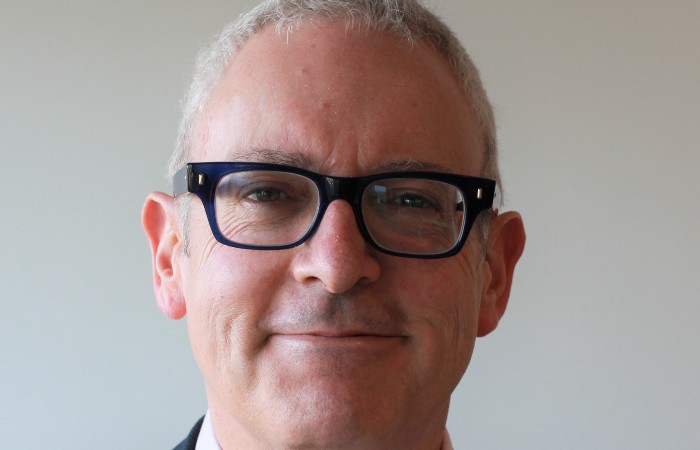Online pharmacy guidance is clear, GPhC chief insists after BBC exposé
In Profession news
Follow this topic
Bookmark
Record learning outcomes
This story was originally published by Independent Community Pharmacist.
General Pharmaceutical Council chief executive Duncan Rudkin has insisted its guidance for online pharmacies selling and supplying medicines clearly sets out what checks they need to carry out to ensure patients do not suffer harm following a BBC investigation that found 20 online pharmacies were selling restricted drugs without checks.
Shortly after the BBC published a story today about its investigation on its website, during which it was able to buy over 1,600 prescription-only pills by entering false information without being challenged, pharmacy’s regulator released a statement defending its guidance for registered pharmacies providing services at a distance, including online pharmacies.
Setting out what checks need to be conducted, Rudkin (pictured) said: “We expect pharmacy owners to carry out a risk assessment to identify which medicines are appropriate for supplying at a distance; identify requests for medicines that are inappropriate, too large or too frequent; and make sure that their staff are able to check the identity of patients and the safety and appropriateness of medicine supply for every patient.
“We have made it clear that some categories of medicines are not suitable to be supplied online unless further safeguards have been put in place to make sure they are clinically appropriate for patients. This includes medicines liable to misuse and/or when ongoing monitoring is important, such as opioids and sedatives.”
BBC found nine pharmacies selling anti-anxiety drug
In its attempt to buy prescription-only drugs from regulated online pharmacies during its investigation, the BBC said it selected three restricted drugs – an anti-anxiety drug, a painkiller and a sleeping medication – and found nine pharmacies selling the anti-anxiety drug, three of those on the basis of answers given to an online questionnaire without further checks.
Undercover reporters were able to buy the painkiller from nine pharmacies based on online questionnaires and sleeping medication from 14 pharmacies. The BBC also said it “found evidence of high-risk and potentially addictive medicines, including benzodiazepines and antidepressants, being sold on the basis of online questionnaires.”
The BBC story also contained a claim by English Pharmacy Board member Thorrun Govind that the GPhC’s guidance on the checks online pharmacies need to carry out is too vague but in the statement, Rudkin appeared to dispute that.
“Our guidance for registered pharmacies providing services at a distance, including on the internet, states clearly that selling and supplying medicines at a distance brings different risks which need to be appropriately managed to protect patient safety. Medicines are not ordinary items of commerce and must not be treated as such," he said.
He urged the BBC to pass the GPhC any information it has from its investigation “so we can urgently look into these concerns and take action to protect patients and the public.”
He also insisted the GPhC has identified instances where some online pharmacies supplied high-risk medicines to patients without carrying out proper checks and taken enforcement and regulatory action where appropriate against the owners of those pharmacies, “as well as individual pharmacy professionals involved in both the prescribing and supply of medicines where their conduct may have fallen short” of its professional standards.
“In particular, we are taking enforcement action where we see high-risk medicines being supplied where the prescriber is relying primarily on an online questionnaire completed by the patient to inform their decision to prescribe, and without other appropriate steps being taken to check that the medicine being prescribed and dispensed is clinically appropriate for the patient,” Rudkin added.
GPhC chief: We’re keeping our guidance under review
He said the GPhC is continuing to keep its guidance “under review as models of delivering pharmacy services develop to meet changing patient and public expectations”.
The BBC said the parents of Katie Corrigan, a 38-year-old nurse who died in 2020 after accidentally overdosing on codeine which she had bought online without telling her doctor, were calling for stricter rules.
The recommendations of the coroner’s report into her death included ensuring “less regulated” controlled drugs were regulated “to a greater extent”. The report said opioids “that are prescription-only medicines such as codeine tablets and morphine oral solution” should be regulated as Schedule 3 drugs.
Coroner’s report called for CQC regulation of online prescribing
The report also called for all online prescribing services accessible by patients in England to be regulated by the Care Quality Commission “regardless of which professional groups are doing the prescribing”.
Rudkin said: “We were very sorry to hear of the death of Katie Corrigan and wish to pass on our sincere condolences to Ms Corrigan’s family.
“Although the (coroner’s) report and recommendations following Ms Corrigan’s death were not directly addressed to the General Pharmaceutical Council, we have reviewed these to identify any action that we can take as the independent regulator for pharmacy in Great Britain.”

